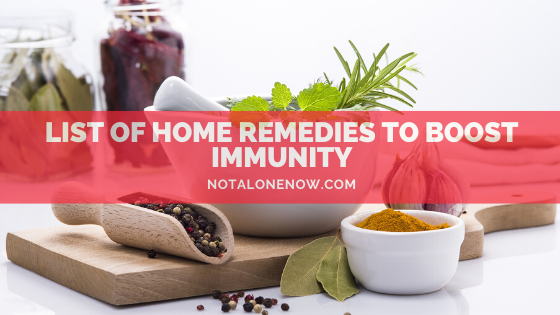In today’s fast-paced world, maintaining a strong immune system is more crucial than ever. Boosting immunity with natural remedies offers a holistic approach to enhancing your body’s defenses against illnesses. By incorporating various natural ingredients and lifestyle changes, you can empower your immune system to function optimally. This article will explore effective strategies and remedies that can help you achieve better health and resilience.
As you delve deeper into this article, you will discover a variety of natural remedies that have been proven to support immune health. From the benefits of specific herbs and spices to the importance of nutrition and hydration, we will cover essential aspects that contribute to a robust immune system. Additionally, we will discuss lifestyle practices that can further enhance your immunity, such as stress management and regular physical activity.
Whether you are looking to prevent seasonal illnesses or simply want to improve your overall well-being, understanding how to boost your immunity with natural remedies is vital. Join us as we uncover the secrets to a healthier immune system and provide you with practical tips that you can easily incorporate into your daily routine. Read on to empower yourself with knowledge and take the first step towards a healthier, more resilient you!
In today’s fast-paced world, maintaining a strong immune system is more important than ever. Natural remedies can play a significant role in enhancing immunity, helping the body to fend off illnesses and infections. This article explores various natural methods to boost immunity, focusing on nutrition, herbs, lifestyle changes, and more.
Nutritional Powerhouses: Foods That Boost Immunity
A well-balanced diet rich in vitamins and minerals is crucial for a robust immune system. Foods high in vitamin C, such as citrus fruits, strawberries, and bell peppers, can enhance the production of white blood cells, which are essential for fighting infections. Additionally, foods rich in zinc, like nuts, seeds, and legumes, support immune function and help in wound healing.
Incorporating a variety of colorful fruits and vegetables into your diet not only provides essential nutrients but also antioxidants that combat oxidative stress. Foods like garlic and ginger have anti-inflammatory properties that can further support immune health. A diet that emphasizes whole foods over processed options can significantly contribute to overall well-being.
Herbal Allies: Nature’s Immune Boosters
Herbs have been used for centuries to enhance health and immunity. Echinacea, for example, is known for its ability to reduce the duration of colds and flu. Similarly, elderberry is rich in antioxidants and has been shown to help reduce the severity of viral infections. Incorporating these herbs into teas or supplements can provide a natural boost to your immune system.
Other notable herbs include astragalus, which is believed to enhance the body’s resistance to stress and disease, and turmeric, known for its anti-inflammatory properties. These herbs can be easily added to meals or consumed as teas, making them accessible options for anyone looking to improve their immune health naturally.
The Role of Sleep and Stress Management
Quality sleep and effective stress management are often overlooked aspects of immune health. During sleep, the body undergoes repair and regeneration, which is vital for maintaining a strong immune response. Chronic sleep deprivation can lead to increased susceptibility to illness, making it essential to prioritize restful sleep.
Moreover, stress can negatively impact immune function by increasing the production of cortisol, a hormone that can suppress the immune response. Techniques such as mindfulness, meditation, and yoga can help manage stress levels, promoting a healthier immune system. Establishing a regular sleep schedule and incorporating relaxation techniques into daily routines can significantly enhance overall health.
Physical Activity: A Natural Immunity Booster
Regular physical activity is another key factor in boosting immunity. Exercise helps improve circulation, allowing immune cells to move more freely throughout the body. Moderate exercise, such as walking, cycling, or swimming, can enhance immune function and reduce inflammation.
Engaging in physical activity also promotes better sleep and reduces stress, creating a positive feedback loop that supports immune health. Aim for at least 150 minutes of moderate aerobic activity each week, along with strength training exercises. This balanced approach to fitness can lead to a stronger immune system and overall better health.
Hydration: The Unsung Hero of Immune Health
Staying hydrated is crucial for maintaining optimal immune function. Water plays a vital role in every bodily process, including the transportation of nutrients and the elimination of toxins. Dehydration can lead to fatigue and decreased immune response, making it essential to drink enough fluids throughout the day.
In addition to water, herbal teas and broths can contribute to hydration while providing additional health benefits. Aim to consume at least eight glasses of water daily, adjusting for activity level and climate. Proper hydration supports overall health and enhances the body’s ability to fight off infections.

